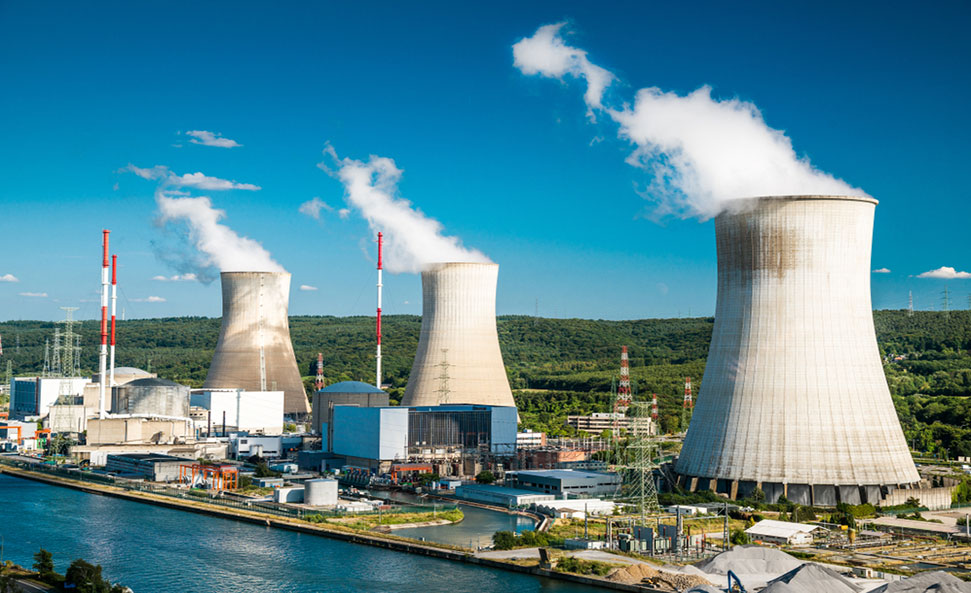
Nigeria Mulls Nuclear Technology for Electricity
The Minister of Science and Technology, Dr. Ogbonnaya Onu has said the deployment and peaceful use of nuclear power technology will improve the production of electricity.
He said it will provide sustainable and reliable electricity that will not be affected by environmental conditions.
Onu also expressed optimism that Nigerian firms and experts will fully grasp these technologies, such as nuclear power and other alternative sources of renewable energy even as the Federal Ministry of Power says it is focused on increasing the power supply in the country to boost economic activities and meet the demands of other consumers.
The Minister of Power, Mr Saleh Mamman, said this in his keynote address at the National Policy and Development Summit in Abuja.
The summit was organised by Mr Ibrahim Hassan, Senior Special Assistant to the President on Policy, Development and Analysis, Office of the Secretary to the Government of the Federation with “The Power Sector Unending Challenges: New Perspective” as its theme.
According to a statement, Dr. Onu spoke when he received the management of Transnational Corporation of Nigeria (TRANSCORP) Plc in his office in Abuja.
He urged the Organised Private Sector (OPS) to domesticate critical technology used in the country, in order to achieve rapid industrialisation.
The minister said the deployment and peaceful use of nuclear power technology will improve the production of electricity and provide sustainable and reliable electricity that will not be affected by environmental conditions.
“The administration of President Muhammadu Buhari is determined to achieve rapid industrialisation for the country in a sustainable and irreversible manner.
“The Minister highlighted the role of Executive Order 5, which promotes Nigerian professionals and emphasises the role of STI and promotes the development of indigenous technology.
“Executive Order 5 is critical to Nigeria’s development, as the Federal Government wants to domesticate all foreign technologies used in Nigeria,” he said.
Dr. Onu expressed optimism that Nigerian firms and experts will fully grasp technologies such as nuclear power and other alternative sources of renewable energy and be able to export this expertise abroad, thereby earning additional foreign exchange for the country.
He said the OPS is vital in the development of Nigeria, adding that TRANSCORP will be a reliable partner in maintaining and developing alternative power plants and sources in the country.
Earlier, the Managing Director of TRANSCORP Plc, Mr. Peter Ikenga said the company wanted to leapfrog the transmission of sustainable and alternative sources of electricity around the country.
He also said over 40 Percent of the country lacks energy penetration and the company wants to achieve energy penetration to all parts of the country.
He said the Federal Government and other investors in the sector were focused on the increasing power supply to consumers.
“Out of 1.2 billion people that lack electricity in the world, about 600 million of them are located in the Sub-Saharan region of West Africa. However, electrification in Nigeria is increasing.
“The current Solar Naija Power Project will provide over five million people with power. However, we understand that more can still be done.
“The ministry is promoting partnership with rural communities, Central Bank of Nigeria (CBN) and others to provide power for those that need it most at the rural level.
“Execution and completion of the legacy project has been reassessed to ensure timely delivery. We have the Mambilla Power Project, Dadin Kowa and many others that are nearing completion,” Mamman said.
The minister said the administration of President Muhammadu Buhari had achieved a lot in the power sector.
According to him, the country has sustained 115,000 hours of power supply in September 2020 which he says is the highest in the history of the country.
“And in January, we had another wonderful achievement on the power supply. These are indicators of our frantic efforts in the sector.
“We are also bringing remarkably more power to the grid from most parts of the country where power projects are being executed into the national grid,” he said.
On the issue of electricity tariff, Mamman stressed that tariff could only be increased on service improvement, adding that poor Nigerians would not be burdened with an increase in tariffs.
He said a lot of power projects were also being carried out in some tertiary institutions across the country.
“114 projects have been approved and will be completed soon. We also have the solar project where CBN will provide funds to private investors to connect 100,000 homes and create employment.
“However, the metering project is still undergoing implementation. We have recorded about 64 per cent success,” he said.

